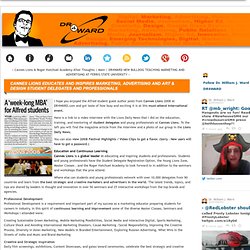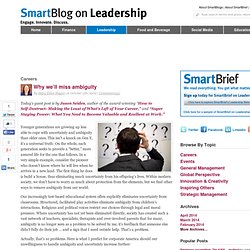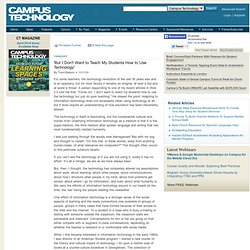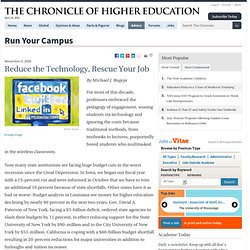

2 Videos to Inspire Students & Teachers Starting the Fall Semester. Teaching with Twitter. Introduction to a Few Tools to Help Us Learn, Share, and Work To. In a previous post I asked Can We Afford Not To Use New Media to Learn, Share, and Work Together?

The conclusion made in the post is that new communication technologies, the ever increasing pace of change, and global competition require important learning skills today to harness the vast amount of information online and to learn how to share it, discuss it, critique it, and make something new out of it. If skills for creativity, communication, and collaboration are needed today than what are some of the basic things we need to get started to do this? A starting point is understanding the big picture on how the separate tools are connected together. Please excuse the language but Marta Kagan asks and answers a great question ....
What The F**K is Social Media? Can We Afford Not To Use New Media to Learn, Share, and Work Tog. I have been working with my students to use new media to engage them and help them find significance with their education beyond just getting a grade.

The old model of teaching has trained students to ask "What's on the Test? " or "What do I need to know or do to get a good grade? " The learning usually stops there and the students forget the answers the next day or week. As Michael Wesch points out, the vast majority of information today is available online and all around us all the time.
ALFRED UNIVERSITY WINS AWARDS AT AMA COLLEGIATE CONFERENCE IN NE. CANNES LIONS EDUCATES AND INSPIRES MARKETING, ADVERTISING AND AR. I hope you enjoyed the Alfred student guest author posts from Cannes Lions 2008 at DR4WARD.com and got taste of how busy and exciting it is at this must-attend international event.

Here is a link to a video interview with the Lions Daily News that I did on the education, training, and mentoring of student delegates and young professionals at Cannes Lions. To the left you will find the magazine article from the interview and a photo of our group in the Lions Daily News. Social Media Classroom. Teacher Resources. Tools & resources for teaching. Blogs. Rheingold.com. Public Relations Matters. InfOpinions at AuburnMedia. Digital Ethnography. Teaching the Facebook Generation. Our goal as college professors is to open studentsâ minds to new experiences so they can grow intellectually while they mature through the traditional four-year process.

But we are also challenged to give students the immediate skills they will need once they graduate so that they can begin their professional careers and move away from the fry-o-later to the cubicle and beyond. Over the past decade, there has been a sea change in the marketplace demands for graduates. Whereas broad skills used to be sufficient, now our students must demonstrate a set of concrete skills that not long ago were required only of those in highly technical majors.
Nowhere has this change created a greater shift than in fields such as marketing and public relations, which traditionally have been viewed as nontechnical but are now demanding a technological competency that is astounding. Students also must be familiar with online gaming and trends in mobile communication technologies. Haves vs. Have-Nots at Public Universities - Room for Debate Blo. SmartBlog on Workforce » Blog Archive » Why we’ll miss ambiguity. Today’s guest post is by Jason Seiden, author of the award-winning “How to Self-Destruct: Making the Least of What’s Left of Your Career,” and “Super Staying Power: What You Need to Become Valuable and Resilient at Work.”

Younger generations are growing up less able to cope with uncertainty and ambiguity than older ones. This isn’t a knock on Gen Y, it’s a universal truth: On the whole, each generation seeks to provide a “better,” more assured life for the one that follows. In a very simple example, consider the pioneer who doesn’t know where he will live when he arrives in a new land. The first thing he does is build a house, thus eliminating much uncertainty from his offspring’s lives. Within modern society, we don’t have to worry as much about protection from the elements, but we find other ways to remove ambiguity from our world.
Our increasingly test-based educational system often explicitly eliminates uncertainty from classrooms. Actually, that’s 10 problems. But I Don't Want to Teach My Students How to Use Technology. Viewpoint 'But I Don't Want to Teach My Students How to Use Technology' By Trent Batson10/21/09 For some teachers, the technology revolution of the last 30 years was and is an epiphany, but for most faculty it remains an enigma, at best a fad and at worst a threat.

A person responding to one of my recent articles in Web 2.0 told me that, "Come on! Reduce the Technology, Rescue Your Job - Run Your Campus - The C. By Michael J.

Bugeja For most of this decade, professors embraced the pedagogy of engagement, wooing students via technology and ignoring the costs because traditional methods, from textbooks to lectures, purportedly bored students who multitasked in the wireless classroom. Now many state institutions are facing huge budget cuts in the worst recession since the Great Depression. In Iowa, we began our fiscal year with a 15-percent cut and were informed in October that we have to trim an additional 10 percent because of state shortfalls. Other states have it as bad or worse. Those facts alone merit an immediate technological and curricular assessment, or else hundreds more professors and staff members could lose their jobs in the coming weeks and months.
In making decisions about who goes and who stays, administrators typically evaluate which positions and units are marginal, useful, or essential. Lessons in e-history. Many of us believed the Silicon Valley hype. Lessons in e-future.